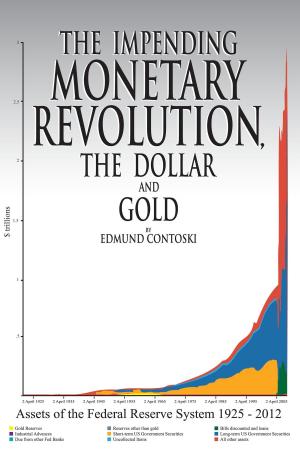Pritical Thinking: The Lost Art of Critical Thinking and Common Sense in Politics and Public Policy
Nonfiction, Social & Cultural Studies, Political Science, Government, Public Affairs & Administration, Politics, Economic Policy| Author: | Shawn Brodof | ISBN: | 9780982957875 |
| Publisher: | Shawn Brodof | Publication: | September 1, 2014 |
| Imprint: | Smashwords Edition | Language: | English |
| Author: | Shawn Brodof |
| ISBN: | 9780982957875 |
| Publisher: | Shawn Brodof |
| Publication: | September 1, 2014 |
| Imprint: | Smashwords Edition |
| Language: | English |
Even to the most casual observer, it is clear that America has seen better days. How did we get here? According to author Shawn Brodof it is due to apathy! He believes the nation’s woes can be solved by applying critical thinking and common sense to the arena of politics and public policy.
When it comes to holding our public officials responsible for their actions, Brodof theorizes that the American public consists of four groups, differentiated by their levels of engagement. The first group pays little or no attention to politics and public policy. The second group is comprised of sound-bite junkies who eat whatever their favorite news source feeds them. The third group is made up of ideologues that refuse to consider anything the “other side” says. The final group, the group that can turn the American ship around, is comprised of Pritical Thinkers.
Pritical Thinkers think for themselves. They base their decisions on facts not emotion, historical precedence not propaganda and talking points. They consider results rather than rhetoric, evidence over ideology. They are truth-seekers who are immune from disinformation and propaganda.
Without the ability to sift through the news with a pritical eye, we are lambs being led to the slaughter. A powerful segment of our representatives in Washington, D.C. no longer serve the interests of the people. As a group, they are self-serving and focused on self-preservation. They seek three things: power, control, and reelection.
Pritical Thinking has been described as part history book, part primer in economics, and part commentary on current events. Brodof reintroduces you to the concept of American Exceptionalism, examines the economic implications of public policy decisions, and tackles many hot-button issues including: Obamacare, dependency on government, immigration, the Federal Reserve, national debt, entitlements, education reform, global warming, abortion, and gun control.
Even to the most casual observer, it is clear that America has seen better days. How did we get here? According to author Shawn Brodof it is due to apathy! He believes the nation’s woes can be solved by applying critical thinking and common sense to the arena of politics and public policy.
When it comes to holding our public officials responsible for their actions, Brodof theorizes that the American public consists of four groups, differentiated by their levels of engagement. The first group pays little or no attention to politics and public policy. The second group is comprised of sound-bite junkies who eat whatever their favorite news source feeds them. The third group is made up of ideologues that refuse to consider anything the “other side” says. The final group, the group that can turn the American ship around, is comprised of Pritical Thinkers.
Pritical Thinkers think for themselves. They base their decisions on facts not emotion, historical precedence not propaganda and talking points. They consider results rather than rhetoric, evidence over ideology. They are truth-seekers who are immune from disinformation and propaganda.
Without the ability to sift through the news with a pritical eye, we are lambs being led to the slaughter. A powerful segment of our representatives in Washington, D.C. no longer serve the interests of the people. As a group, they are self-serving and focused on self-preservation. They seek three things: power, control, and reelection.
Pritical Thinking has been described as part history book, part primer in economics, and part commentary on current events. Brodof reintroduces you to the concept of American Exceptionalism, examines the economic implications of public policy decisions, and tackles many hot-button issues including: Obamacare, dependency on government, immigration, the Federal Reserve, national debt, entitlements, education reform, global warming, abortion, and gun control.















